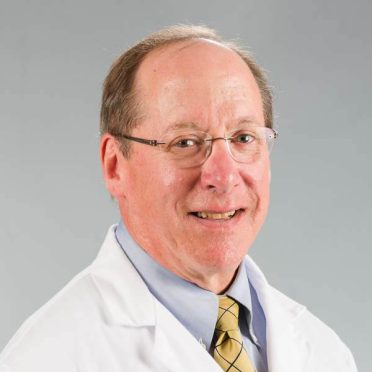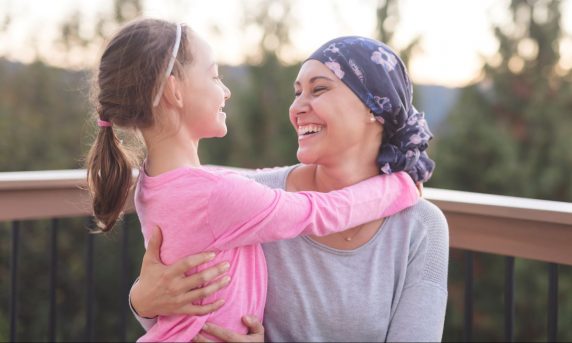Almost half of us will face a cancer diagnosis in our lifetime — but did you know that many of those cases may be preventable?
“There are several ways to help decrease your risk of hearing that diagnosis,” says Andrew Salner, MD, the medical director at Hartford HealthCare Cancer Institute. “Cancer epidemiologists believe we can prevent a large number of cancers with lifestyle changes.”
So what can you do right now to lower your risk? Here’s where to start.
10 everyday ways to reduce your cancer risk.
1. Quit smoking — and skip the vaping, too.
Tobacco use is still the number one preventable cause of cancer, responsible for 80 to 85% of lung cancer cases. But it’s not just your lungs that are at risk.
“Smoking also increases your risk of cancers in the mouth, throat, esophagus, pancreas, bladder and more,” says Dr. Salner. “It’s never too late to quit.”
> Related: 5 Common Causes of Lung Cancer Besides Smoking
2. Steer clear of second-hand smoke.
Even if you don’t smoke, breathing in someone else’s smoke can increase your risk of cancer.
“Second-hand smoke contains many of the same harmful chemicals,” says Dr. Salner. “Avoiding smoky environments is an important part of protecting your health.”
Ban smoking in your home and car, and choose smoke-free places when going out.
> Related: 8 Ways to Prevent Cancer
3. Protect your skin from the sun.
Skin cancer is the most common cancer in the U.S., but it’s also one of the most preventable.
“Sunscreen with an SPF of 15 or higher can help reduce your risk,” says Dr. Salner. “Hats, sunglasses and other clothing can also help.”
And don’t forget to reapply sunscreen every two hours, especially if you’re sweating or swimming.
4. Say no to tanning beds.
That sun-kissed glow from a tanning booth comes with a cost.
“We’ve seen many cases of both melanoma and non-melanoma skin cancers in young people who used tanning beds,” says Dr. Salner.
Skip the UV rays and try a sunless tanning lotion instead.
> Related: Your Summertime Guide to Preventing Cancer
5. Move more, sit less.
It’s not just good for your heart — regular exercise also lowers your cancer risk.
“Physical activity helps reduce the risk of several cancer types,” Dr. Salner explains. “Aim for at least 150 minutes per week.”
Even brisk walking counts — the key is consistency.
6. Reach a healthy weight.
Obesity is linked to at least 13 different types of cancer. The good news? Even modest weight loss can make a difference.
“Try cutting back on processed foods and eating more fruits and vegetables,” Dr. Salner suggests. “Every step toward a healthy weight counts.”
Just remember to aim for progress, not perfection.
7. Limit alcohol — or skip it altogether.
Alcohol is a known risk factor for several cancers, including breast, liver and esophageal.
“Limiting alcohol intake is one of the best things you can do for cancer prevention,” says Dr. Salner.
If you do drink, stick to moderation — that means no more than one drink per day for women, or two for men.
8. Get vaccinated.
Some cancers are linked to viruses — but vaccines can help protect you.
“Vaccines for hepatitis B and HPV can reduce the risk of liver, cervical, anal and throat cancers,” Dr. Salner says.
And although there’s no vaccine for hepatitis C, screening can help catch it before it turns into liver cancer.
9. Know your risks at work – and at home.
Certain chemicals and substances — like asbestos, benzene, and PCBs — are known carcinogens.
“If you’re exposed to these in your environment or workplace, use appropriate protective gear,” says Dr. Salner.
10. Stay on top of screenings.
Some cancers can be caught early — or even prevented entirely — with routine screening tests.
“Talk to your doctor about which screenings are right for you,” Dr. Salner advises.
That may include colonoscopies, mammograms, prostate exams or low-dose CT scans for lung cancer, depending on your age, gender, and risk factors.
> Related: How Do Pap Smears Prevent Cervical Cancer?
It’s never too late to start.
Even if you haven’t followed all the tips above, making changes now can still help.
“Any preventative action is better than none,” says Dr. Salner. “Even a small change can help reduce your risk of cancer.”
Your future self will thank you.



